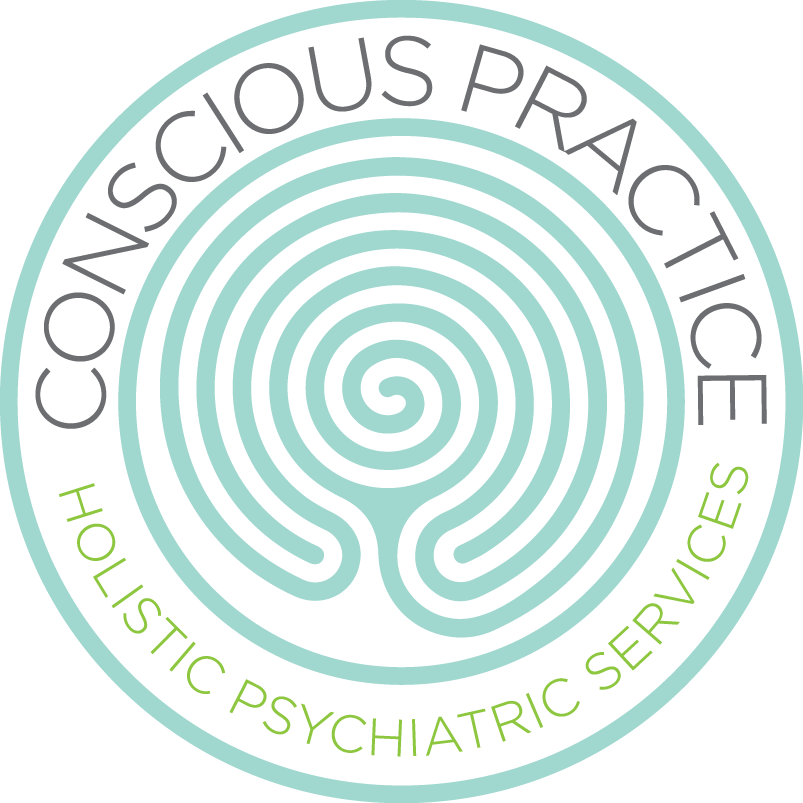At the beginning of my career, I worked at a large healthcare system, primarily in the outpatient behavioral health department with occasional weekend shifts on the inpatient psychiatric unit and at times doing psychiatric consults in the medical hospital. In the hiring process, I was assured I would be welcome and even celebrated for bringing a holistic approach to the department, integrating medicine, psychotherapy, mindfulness, and lifestyle counseling to facilitate patients’ healing. However, it quickly became clear to me on the job that I was hired and expected to simply prescribe medications (and avoid making waves). Administrators and therapists alike literally referred to me as “a prescriber,” a term I had honestly never heard of prior to being pigeonholed by it.
As a psychiatric mental health nurse practitioner, I do have a license to prescribe medications. And I use it judiciously. But that is only one aspect of how I approach mental health care. As I have branched out on my own in private practice, I appreciate the flexibility of using an integrative approach with both psychotherapy and medication options, along with holistic lifestyle coaching depending on each individual’s needs. This allows me to offer a unique skill set and genuinely personalized care for each person I meet.
Psych meds can be such a polarizing topic–people seem to either love them or hate them. Some people think they should make them feel happy and comfortable 24/7 (sorry but no), while others are convinced they will turn them into zombies (also no).
Over the years, I have seen psych meds be misused, misunderstood, demonized, and valorized—by both clients and clinicians. At times, I have seen meds do more harm than good. Other times I have seen meds enable people survive so they could figure out how to thrive, getting to a place where they can begin attending to deep, life-changing healing work. I have seen the gift of someone finally feeling like change is possible. I have also seen the gift of supporting a person taper off medication they did not want, one that caused disruptive side effects, finding their voice and advocating for what really makes them feel whole and well. Any scenario has the potential to be empowering if it’s done with a clinician who honors your autonomy and attunes to your values and needs.
We can also notice that people’s needs inevitably ebb and flow. Taking medication today does not mean you will take the medication forever–despite what another provider may have told you. You always have a choice. Medicine may make sense for one period of your life and not feel right in another. On the other hand, perhaps you have always had judgments about taking psych meds, but during a particular phase of your life, you start to question those judgments and consider it as an option. Or maybe you’ve been on a certain medication for so long, and finally are ready to explore reducing or stopping it (also known as deprescribing). Whatever the scenario, I am happy to be a resource to people working through the process.
Most people I work with who have talked to a healthcare provider about their mental health say that they’ve felt pressured to take medication. This does such a disservice to clients. I take pride in being passionately neutral when it comes to prescribing. We should remain curious what offerings draw people to get treatment, letting what is most resonant with the person guide our discussion and collaborative planning to address a person’s issues. Equally important, I think, is completely disengaging from any notion that a person SHOULD take medication. That judgment would simply be counterproductive to your healing. It might be unpopular to say so, but if you don’t think it’s going to help, it’s probably not going to help.
And science backs this up. While I feel confident and clear about the balanced prescribing approach I’ve developed, I’ve been tickled to find that clinical research also supports what I’ve observed in practice. There is plenty of evidence that patients who experience treatment as disempowering are less likely to benefit from treatment. Logically! Studies also show that partnering with patients in their treatment preferences improves outcomes. Of course! And most widely known, the placebo effect–when a patient has a therapeutic response to a fake treatment–continually reminds researchers that a patient’s hopeful expectations about improving cause the patient to actually improve. Yes, our bodies can and do physiologically change based on our expectations. Amazing! Similarly, both researchers and clinicians are familiar with the inverse of this–the nocebo effect, in which patients develop side effects from a fake treatment because of their negative beliefs about the treatment. If we think something is going to hurt, there’s a pretty good chance it’s going to hurt.
It’s clear that the way we relate to meds plays a huge role in how and indeed if they play a part in our healing. And THAT relationship is what I tune into rather than blindly (and falsely) assuming that every client will benefit from medication. Though I have a wealth of knowledge in psychopharmacology and psychotherapy interventions, I let your beliefs, your values, and your desires guide my recommendations. Truly.
Psych meds are not for everyone. Their effects are profoundly impacted by the meaning we ascribe to them and the relationship in which they’re prescribed. For some people, medicine is an instrument to support their mental health--a tool that I'm grateful to have access to for clients when it’s a wise, compassionate, and desired approach. I appreciate both the theoretical knowledge and the practical knowhow it takes to manage medications so that I can have informed, honest, direct, passionately neutral conversations with clients about their treatment options.

